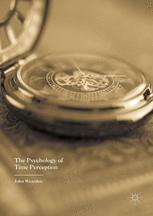

Most ebook files are in PDF format, so you can easily read them using various software such as Foxit Reader or directly on the Google Chrome browser.
Some ebook files are released by publishers in other formats such as .awz, .mobi, .epub, .fb2, etc. You may need to install specific software to read these formats on mobile/PC, such as Calibre.
Please read the tutorial at this link: https://ebookbell.com/faq
We offer FREE conversion to the popular formats you request; however, this may take some time. Therefore, right after payment, please email us, and we will try to provide the service as quickly as possible.
For some exceptional file formats or broken links (if any), please refrain from opening any disputes. Instead, email us first, and we will try to assist within a maximum of 6 hours.
EbookBell Team

4.1
70 reviewsHow do people perceive time? This book presents a wealth of contemporary and classical research, including some of the history and philosophy of time perception. Influential internal clock-based models of time perception receive an in-depth but non-technical introduction and discussion. The role of cognition and emotion in perceiving time is also explored, as well as questions derived from time experience in daily life, such as why time seems to pass more quickly in one situation rather than another. Classical and modern research on timing in children is reviewed, as well as work on time perception and time experience in older people. Leading recent models of animal timing are also discussed in a non-mathematical way.